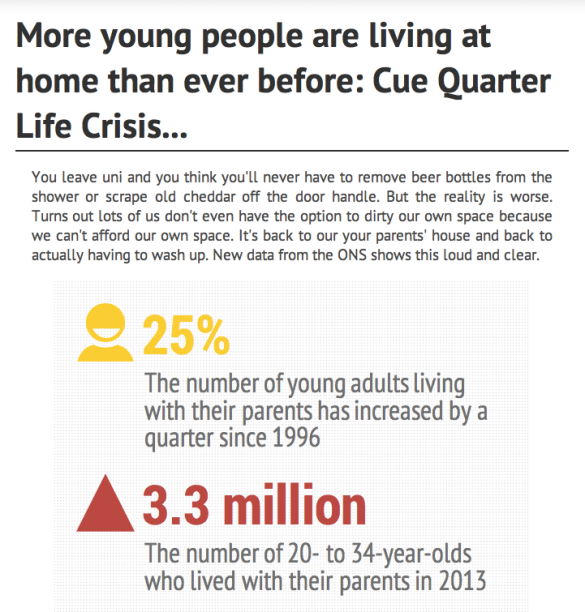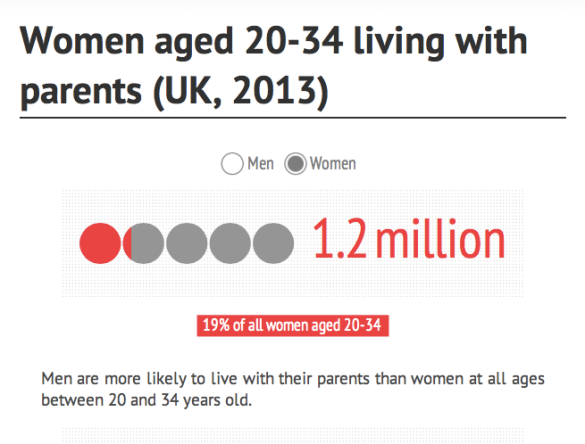
Damian Barr: Writer, columnist, playwright and salonnière.
Image courtesy of Daisy Honeybunn
Back in 2006, Damian Barr was ahead of the curve.
His book Get it together: A Guide to Surviving Your Quarterlife Crisis, inspired by a column he wrote for the Times in 2001-3, was the first book about the Quarter-life crisis to be published in the UK. Now as the QLC becomes more and more of a growing concern, we caught up with Damian to find out his opinions on the QLC and how it can be avoided – or if it even should.
So Damian, you were writing about this quite a while ago, but the Quarter-life crisis seems to be in the media a lot more these days. Do you think things have got worse, or is it an eternal dilemma?
I think that every generation likes to think that they were the first to go through a defining crisis, but I also think that things are definitely different than they were with our parents and grandparents. The economy is very fragmented, a career is very different and the idea of a retirement is very different too.
Education costs a lot more, property costs a lot more, so I think we’ve got a few factors that mean we are facing a unique crisis.
Still, since I started writing about it, in some ways the economic conditions have got worse, and in some ways they’ve got better. In addition, I think social media and the rise of the internet has given people an outlet for those anxieties, and an opportunity to get support. And also a way of doing something about it – finding out about different careers, different places to live, and different people to live with.
How would you define a QLC?
I think that it’s a feeling that you should be doing, being or having more than you are.
We’re promised that our twenties are the easiest most fun decades of our lives, and actually they’re the most competitive and most challenging and exhausting in lots of ways.
It’s a sort of sneaking suspicion that things aren’t going as they should be. For some people that manifests as anxiety, for some people it’s depression, for other people it’s rage, they wish they’d had more fun at university when they had the chance. People seem disillusioned. Why have I done all this work and got into all this debt just so I can have this job or house or whatever?
So would you say that you had a QLC in your twenties?
I think that I did. I mean, not as bad as some people, but I think that in my twenties – this was during the first dotcom boom, and I worked for various papers and websites, and coded and all that stuff – I got made redundant several times, in quick succession. And actually it was the best thing that could have happened to me, because it made me realise very early on that employers aren’t your parents. They don’t have to give you everything, you have to work out what it is you want for yourself. So I decided fairly early on that I didn’t want to have a job again. And that enabled be to have the career I have now.
So would you say that for you, and possibly other people, the QLC could be a rite of passage that can actually be a force for good?
Oh definitely! It’s much better to have a quarter-life crisis when you’ve still got time ahead of you to change than to have a mid-life crisis when you’re looking back at a past that’s filled with regrets.
What kind of advice would you give people to get out of a Quarter-life crisis? Should they even try?
I think the first thing to do is to acknowledge that you’re having some sort of problem, that everything isn’t OK. You shouldn’t be putting up those great status update about what a great life you’re having, when actually you’re feeling crap. Be OK with that, realise it’s alright to talk to people about that, and if necessary get professional help. Get support, not just from your peers, but a therapist, someone you can talk to about how you’re doing.
OK Damian, thanks for talking to us! Is there anything else you’d like to add?
I suppose it’s interesting to note that the quarter-life crisis has now become more mainstream. When I did my book it was the only one like it, and now there are loads of books and there are novels, and there’s been at least one TV series. It’s become a sort of must-have modern malaise – but the fact of the matter is, for the people experiencing it it is serious. It’s difficult, but it can be productive, and it can be positive.
Thanks Damian, great to hear from you.





